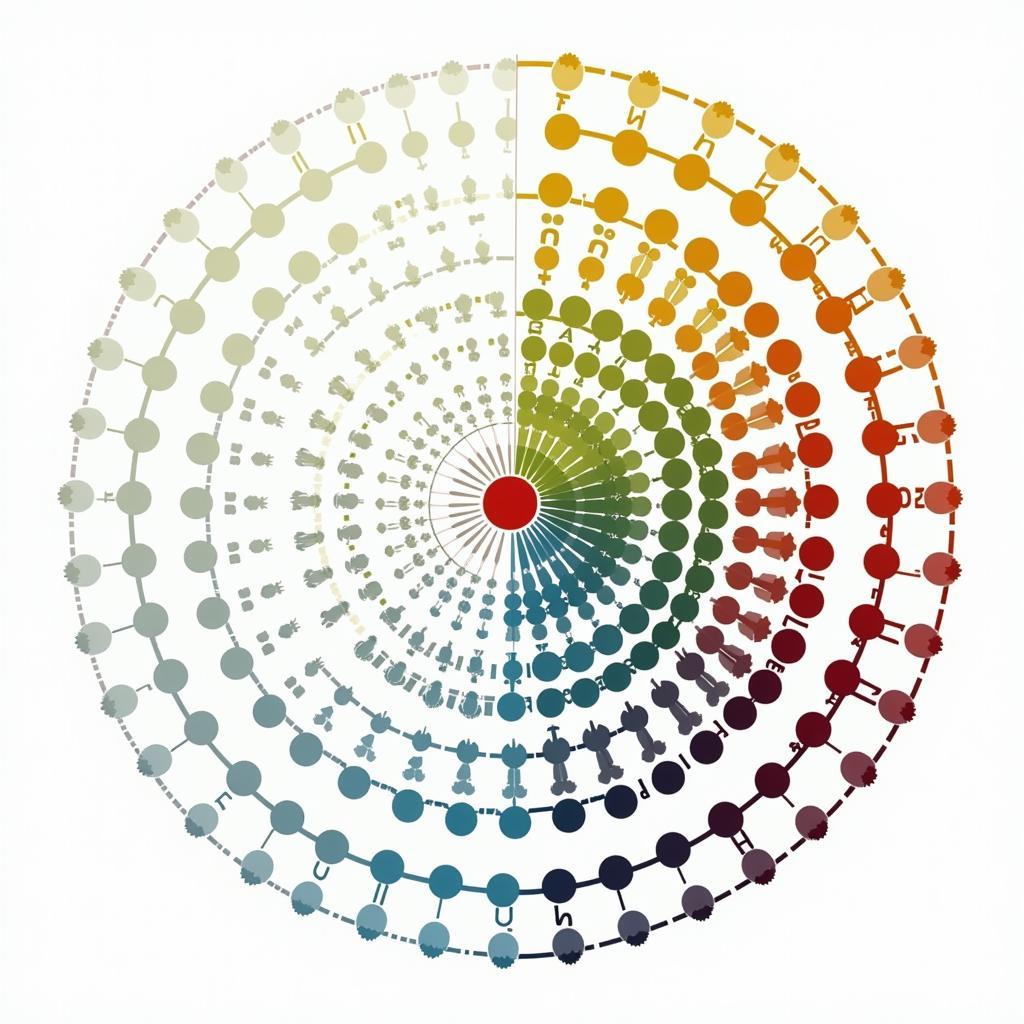The Ieee Computational Intelligence Society (CIS) plays a crucial role in developing technologies that can contribute to a more peaceful world. By fostering innovation in areas like artificial intelligence, fuzzy systems, and evolutionary computation, the CIS empowers researchers and engineers to create solutions for complex global challenges, ultimately promoting peace and understanding.
How Computational Intelligence Can Contribute to Peace
Computational intelligence offers a diverse toolkit for addressing issues that can lead to conflict. For instance, predictive modeling can help identify potential hotspots of violence, allowing for proactive intervention. Similarly, intelligent resource allocation can ensure equitable distribution of essential resources, reducing tensions and promoting stability.
Predicting and Preventing Conflicts with AI
AI algorithms can analyze vast datasets of historical and real-time information, including social media sentiment, economic indicators, and environmental factors, to identify patterns and predict potential conflicts. This information can empower policymakers and peacekeepers to take preventative measures, mitigating the risk of escalation.
One example of this is using natural language processing to analyze online communication and identify hate speech or incitements to violence. By detecting these early warning signs, authorities can intervene and prevent the spread of harmful narratives that can fuel conflict.
Promoting Equitable Resource Allocation
Scarcity of resources, such as water and land, can be a major driver of conflict. Computational intelligence techniques can optimize resource management, ensuring fair and efficient distribution among different groups. This can reduce competition and promote cooperation, fostering a more peaceful environment.
Intelligent systems can also help design sustainable agricultural practices, improving food security and reducing the likelihood of resource-related conflicts.
 Intelligent Resource Allocation for Peace
Intelligent Resource Allocation for Peace
The Role of the IEEE Computational Intelligence Society
The IEEE CIS is at the forefront of advancing computational intelligence research and development. By providing a platform for collaboration and knowledge sharing, the CIS empowers its members to develop innovative solutions for complex global challenges, including those related to peace and security.
Fostering Collaboration and Innovation
The CIS organizes conferences, workshops, and publications that bring together researchers, practitioners, and industry experts from around the world. This fosters a vibrant community of innovators who are pushing the boundaries of computational intelligence and exploring its potential for positive social impact.
Empowering the Next Generation of Peacebuilders
The CIS also plays a vital role in educating and training the next generation of computational intelligence experts. By providing access to resources and mentorship opportunities, the CIS helps young researchers develop the skills and knowledge needed to address the challenges of the 21st century, including building a more peaceful world.
 IEEE CIS Collaboration for Global Peace
IEEE CIS Collaboration for Global Peace
Conclusion
The IEEE Computational Intelligence Society (CIS) is making significant contributions to the pursuit of global peace by fostering innovation and collaboration in the field of computational intelligence. Through its work in areas like AI and predictive modeling, the CIS is empowering researchers and practitioners to develop solutions that can prevent conflicts, promote equitable resource allocation, and build a more sustainable and peaceful future.
FAQs
-
What is the IEEE Computational Intelligence Society?
The IEEE Computational Intelligence Society (CIS) is a professional society dedicated to advancing the theory and application of computational intelligence. -
How can I join the IEEE CIS?
You can join the IEEE CIS through the IEEE website. -
What are some examples of computational intelligence techniques?
Some examples include artificial intelligence, fuzzy systems, and evolutionary computation. -
How can computational intelligence contribute to peace?
It can contribute by predicting conflicts, optimizing resource allocation, and promoting understanding. -
What resources does the IEEE CIS offer its members?
The CIS offers conferences, publications, and networking opportunities. -
How does the IEEE CIS support young researchers?
It provides access to resources and mentorship opportunities. -
What is the focus of the IEEE CIS in relation to peacebuilding?
The CIS focuses on leveraging computational intelligence to address root causes of conflict and develop solutions for a more peaceful world.
Contact Us
For support, please contact us at Phone: 02043854663, Email: [email protected] or visit our address: Khu 34, Bac Giang, 260000, Vietnam. We have a 24/7 customer service team.